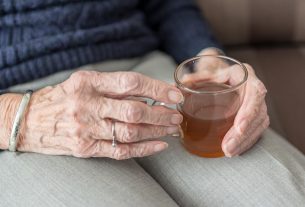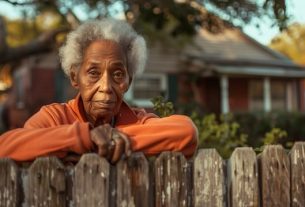Elderly companion services are a transformative approach to in-home health monitoring for seniors, seamlessly integrating medical care with emotional support. These services utilize advanced technologies like wearable devices and telehealth systems to monitor vital signs, track medication adherence, and promptly alert caregivers or families of any health concerns. They offer real-time intervention opportunities, enhancing the quality of life for elderly individuals by allowing them to age in place with greater autonomy and reassurance. Companion services also provide scheduled social interactions and reminders, which are crucial for combating isolation and fostering a sense of community connection, thereby supporting mental health. With recent advancements, these services now incorporate sensor technology, artificial intelligence, and data analytics to deliver even more personalized and proactive healthcare management. They predict potential health risks early on, facilitating timely preventative measures that contribute to improved health outcomes for the elderly. These innovations are designed with user accessibility in mind, ensuring seniors can interact with the systems through voice or touch-friendly interfaces, regardless of their technological proficiency. By doing so, these services not only support the autonomy of older adults but also offer families the peace of mind they need while managing other life responsibilities. Elderly companion services are thus an essential part of modern eldercare solutions, offering targeted support and companionship that is both beneficial and often indispensable for maintaining the well-being and independence of seniors within their own homes.
In-home health monitoring has become a cornerstone of elderly care, with technologies and services evolving to provide seniors with the support they need to maintain independence and well-being. This article delves into the transformative role of elderly companion services within this realm, exploring their functions, technological advancements, and the myriad benefits they offer to both seniors and their loved ones. Elderly companion services represent a significant leap in care delivery, ensuring that seniors receive attentive and tailored assistance right from the comfort of their own homes. Join us as we examine the nuances of this growing field, illuminating how these services are setting new standards for elder care.
- Understanding the Role of Elderly Companion Services in In-Home Health Monitoring
- The Technology Behind Modern Elderly Companion Services
- Benefits of Elderly Companion Services for Seniors and Their Families
Understanding the Role of Elderly Companion Services in In-Home Health Monitoring

Elderly companion services play a pivotal role in the realm of in-home health monitoring, offering a blend of social interaction and continuous care that addresses both the medical and emotional well-being of seniors. These services are designed to provide a supportive presence for older adults who may be living alone or require assistance due to age-related challenges. By leveraging technology such as wearable devices and telehealth systems, companion services can monitor vital signs, track medication adherence, and detect potential health issues in real time. This proactive approach to health monitoring enables timely interventions and peace of mind for both the elderly individuals and their families, ensuring a higher quality of life and independence within their own homes. Furthermore, these services often include scheduled calls, reminders, and companionship from trained professionals who can offer social engagement, reduce feelings of isolation, and help seniors maintain a sense of community connection, which is crucial for mental health. The integration of elderly companion services into in-home health monitoring systems not only supports the physical health of seniors but also nurtures their emotional and psychological needs, creating a holistic approach to aging in place.
The Technology Behind Modern Elderly Companion Services

Advanced sensor technology, artificial intelligence, and data analytics form the cornerstone of modern elderly companion services. These sophisticated systems are designed to provide real-time health monitoring for seniors in the comfort of their own homes. Wearable devices equipped with sensors can track vital signs such as heart rate, blood oxygen levels, and sleep patterns, alerting caregivers or family members to any irregularities that may indicate a need for medical attention. Similarly, these devices often include fall detection capabilities, ensuring immediate assistance is dispatched in the event of an accident.
The integration of AI enables these companion services to learn and adapt to individual user behaviors, habits, and health trends over time. This personalized approach allows for proactive rather than reactive care. Machine learning algorithms analyze the collected data to predict potential health issues before they escalate, facilitating early interventions that can significantly improve health outcomes for the elderly. Moreover, these systems can be voice-activated or feature intuitive touch interfaces, making them user-friendly and accessible to seniors with varying levels of tech proficiency. This technology empowers seniors to maintain independence while providing peace of mind to their loved ones, all within the privacy and familiarity of their home environment.
Benefits of Elderly Companion Services for Seniors and Their Families

Elderly companion services offer a suite of benefits for seniors, providing them with the support and companionship that can significantly enhance their quality of life. These services are designed to address the social isolation often faced by older adults, offering regular interaction and emotional support from dedicated caregivers. This not only improves mental well-being but also promotes a sense of security and belonging. For families, knowing that their loved ones have reliable assistance can alleviate worry and stress, allowing them to focus on other important aspects of life with peace of mind. The services often include medication reminders, which help in ensuring seniors take their medications as prescribed, thus maintaining their health regimen without family members needing to constantly check in. Additionally, these services can assist with daily activities, such as meal preparation and light housekeeping, contributing to a safer and more comfortable living environment for seniors. With elderly companion services, families can be assured that their elderly relatives receive the necessary care and companionship, fostering an environment where seniors can thrive in the comfort of their own homes. These benefits underscore the value of such services as a vital component of in-home health monitoring assistance, making them an integral part of modern eldercare solutions.
In conclusion, elderly companion services represent a significant advancement in in-home health monitoring assistance, offering a blend of technology and human connection that is both reliable and empathetic. These services not only enhance the quality of life for seniors but also provide reassurance to their families, who can rest easier knowing their loved ones are monitored with care and competence. As the demand for such services grows, it is clear that they will play an increasingly vital role in supporting the aging population’s health and independence at home. The future of elderly companion services appears bright, with ongoing technological advancements set to further improve the support and care offered to seniors.



